On June 3rd, 2024, the Pickaxe Collective released Hymns of New Wine, produced by Brandon Fehderau with Mkondo Studio. The artwork was done by Virginia Russo.
Seeds from Other Worlds

This song, indeed the entire album, is inspired by Fyodor Dostoevsky's The Brothers Karamazov, a book I have spent considerable time with. As an alternative to the 19th century modernist materialism, Dostoevsky advocated the biblical idea that God has implanted eternal seeds in the very fabric of our very being. But we need the Word of God to activate this, when the time is right and as we are willing.
A Renaissance Dream
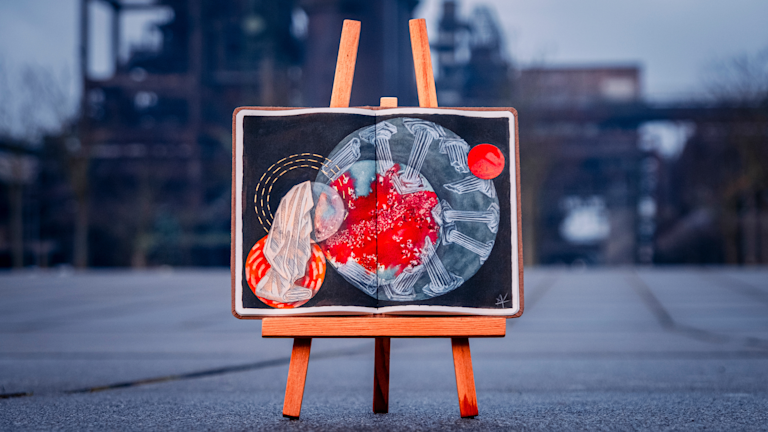
In this song, I attempt to convey a spiritual renewal rooted in the resurrection of Christ. True power is not found in the political centres such as imperial Rome, or in Dostoevsky's time, Moscow. God transforms our lives like water into wine, a story of the Gospel of John, but also important to Dostoevsky. We dream of a deeper transformation and renaissance of the heart. You can read more about this in the meditation Tree Planting with Philosophers.
In Lois' Basement
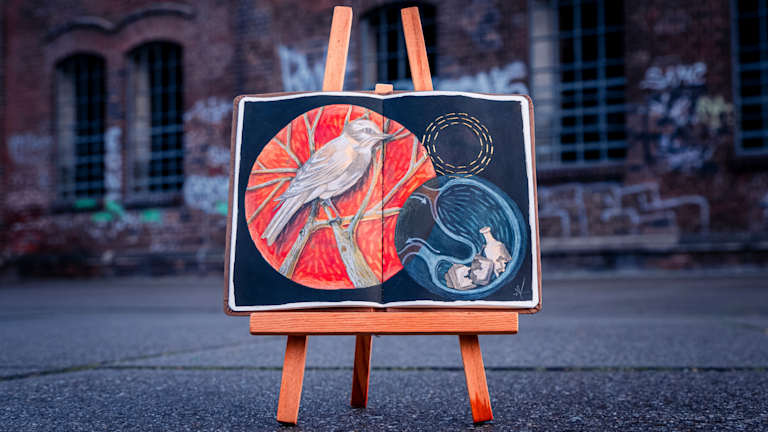
The basement referred to here is one I spent a lot of time with friends as a young man. However, I use it as a metaphor to express two levels of the self. The lower level represents our basic desires, while the upper floor is the image of God. There was a time in my life, when I, ensnared by the allure of modern self sovereignty, ignored the higher level of self, to my own detriment. You can read more about this in the meditation A War of (Compatible) Natures.
Mitya's Desire
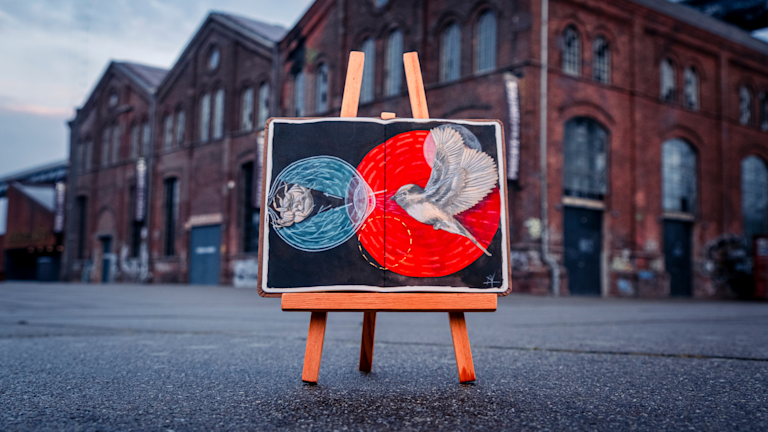
According to Dostoevsky, beauty is a riddle. What do we find desirable? If we are still in the basement of the self, our perception of what is morally beautiful because twisted. In my own brokenness, I took found the morally ugly beautiful. The song explores the complexity of our desire for beauty and the inescapable desire we have for something transcendent. You can read more about this in the meditation The Enigma of Beauty.
Something in Me Moved
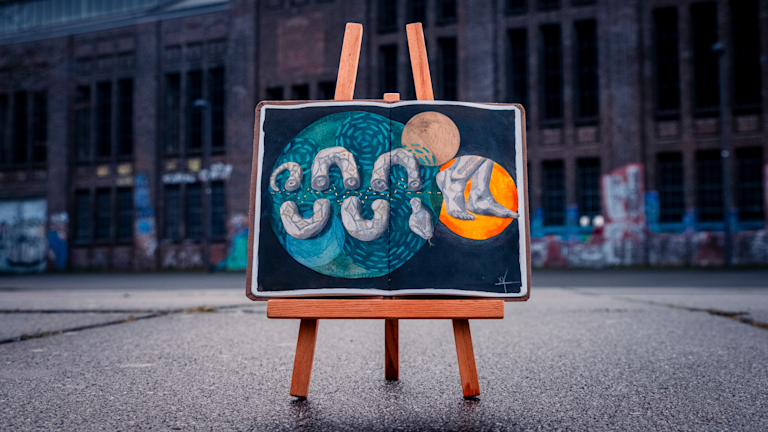
This song is still in the realm of "Lois's Basement," but represents a memory when Kurt Cobain of Nirvana committed suicide. In modernity, we have sought for a freedom of self, but disconnected from who we truly are created in God's image. The suicide of Cobain caused me to question my refusal to walk up to the higher floor of the self. A deeper power broke through, however, moving me toward the God of eternal love. You can read more of this in the meditation The Smell of Innocence of Lost.
Into a Living Sign
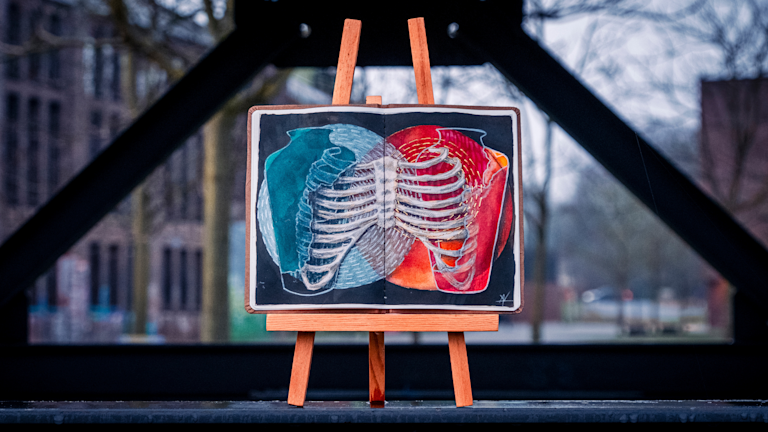
When Jesus turned water into wine, we are told that this was the first of his "signs," which pointed his death and resurrection. As a young man, God encountered me through the name of Jesus, transforming me, making me too, into a sign of his grace. I was baptised in Christ with Spirit and with water. You can read more of this in the meditation The Joy of Rebirth.
Surprise of Silence
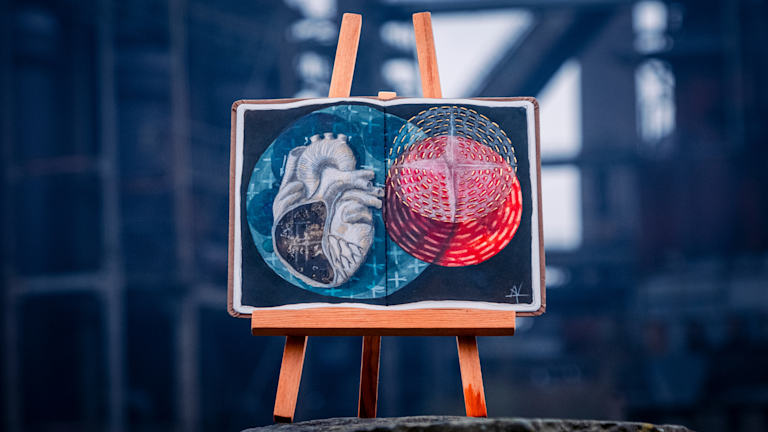
A few months after my encounter with God, a preacher encouraged me to listen to the voice of God. I gave it a go, not expecting much. But I was overwhelmed by a Presence. I heard the word, "my Spirit rests on you, follow me." These words still give me hope. God exists and is a personal God. You can read more of this in the mediation Discovering our Voice.
A New Naivety
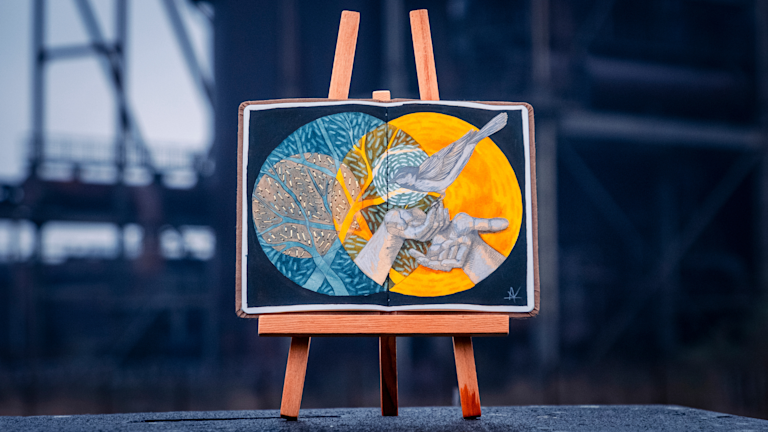
My encounter with Christ also transformed my view of nature. That is, Christ initiated an ecological vision of the interconnectedness of nature and humanity. I remember taking my guitar out into the fields of my parents farm simply to worship my Creator. The idea of the song too is take from the teaching of Zosima in The Brothers Karamazov, where he encourages his disciples to love all creation. You can read more of this in the meditation Ecstasy for the Whole.
The Joy of Cana

Dostoevsky responded to modern moralism that claimed to "love humanity," but did so in the abstract. This was also a response to the emerging socialism in Russia. That is, we like the idea of love for humanity, but we find it difficult to love individual people on a daily basis. However, the Gospel of Christ provides the transforming power to "love humanity" not in the abstract, but in the daily flux of our relationships and social life.

